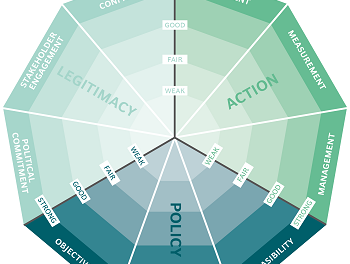
Innovation – Does not start with ideas

Rikus Grobler
Last week I digressed from my regular list of topics to have my say with regards to a comment that was made about innovation being an overloaded and clichéd term. Before this “incident” I was discussing the innovation process and I concluded that the innovation process starts with the identification of a challenge or opportunity and then raising ideas to exploit the opportunity or to resolve the challenge.
A step back from idea generation
It is a common misconception that innovation starts with a brilliant idea, a flash of genius that hits someone and then sets in motion a chain of events that leads to the next big thing. Although these kind of events do happen, it is by far the exception and if you are waiting for innovation to happen in this manner, I am afraid I have some bad news for you.
Yes, ideas are certainly an essential part of the innovation process, but the distinction between ideas and innovations is missing, and there are other aspects of the innovation process that are essential to success, but frequently get insufficient attention. The truth is that innovation is the result of “focused” idea generation and that there are important processes that must happen first, before you jump in and start generating ideas.
You will recall that in a previous article I touched on Idea Management Systems, basically an IT system that relieves the administrative burden of soliciting ideas, capturing ideas, collaborating on ideas, grouping ideas, reviewing and rating ideas and generating reports on all these metrics. Idea collection systems are based on the expectation that people will share their good ideas, but as this is happening at random, there is no reasonable basis to suppose that they really will be good ideas, let alone great ideas. Experience has shown that in fact what usually turns up are a lot of bad ones and old ones. This should not be surprising if nothing was done to stimulate or encourage breakthrough thinking, as opposed to incremental ideas, so of course most of the ideas that turn up are incremental. They arise during the regular course of the work day, when people are generally focused on getting their work done, so of course they pertain exactly to what people are doing at the moment. To create a realistic possibility of breakthroughs and new business model innovations, and to improve the quality of everyone’s ideas of all types, incremental and breakthrough and business model, you have to structure the process in a much more purposeful way.
I like the analogy of Langdon Morris in this context: “Ideas are of course the seeds of innovation, just as ore is taken from the ground as the raw material of steel, and waving fields of wheat provide the raw material for bread. But it takes a lot of preparation work to get raw ore from a mine and transform it into steel, and likewise there is work involved in preparing a farmer’s fields to grow the wheat long before there’s any grain to harvest or bread to eat”. It’s the same with innovation. We just don’t start by collecting raw ideas, because a lot of preparation has to be done first to ensure that we get good ideas. There has to be a system, you cannot depend on serendipity.
The goal of innovation is to create strategic advantage. Your organisation should be thinking through specifically how innovation is going to add value to your organisation’s strategic intents. This will lead you to identify challenges and opportunities that will target idea generation with the greatest potential to provide strategic advantage. This is also the first step in the innovation process, through the translation of strategy into a set of specific intents and expectations.
Next Time
I have laid the basis for the notion that innovation does not start with idea generation as the first step, but that the first step is to align your innovation efforts to the organisation’s strategy. Next time I will continue with this discussion on how to align innovation efforts to strategy and how this inevitably focuses idea generation. I conclude with a quote by Thomas Edison: “I never did anything by accident, nor did any of my inventions come by accident; they came by work”.
Reference
Morris, L. 2011. The Innovation Master Plan: The CEO’s Guide to Innovation. 2011. Walnut Creek, USA: Innovation Academy.










































